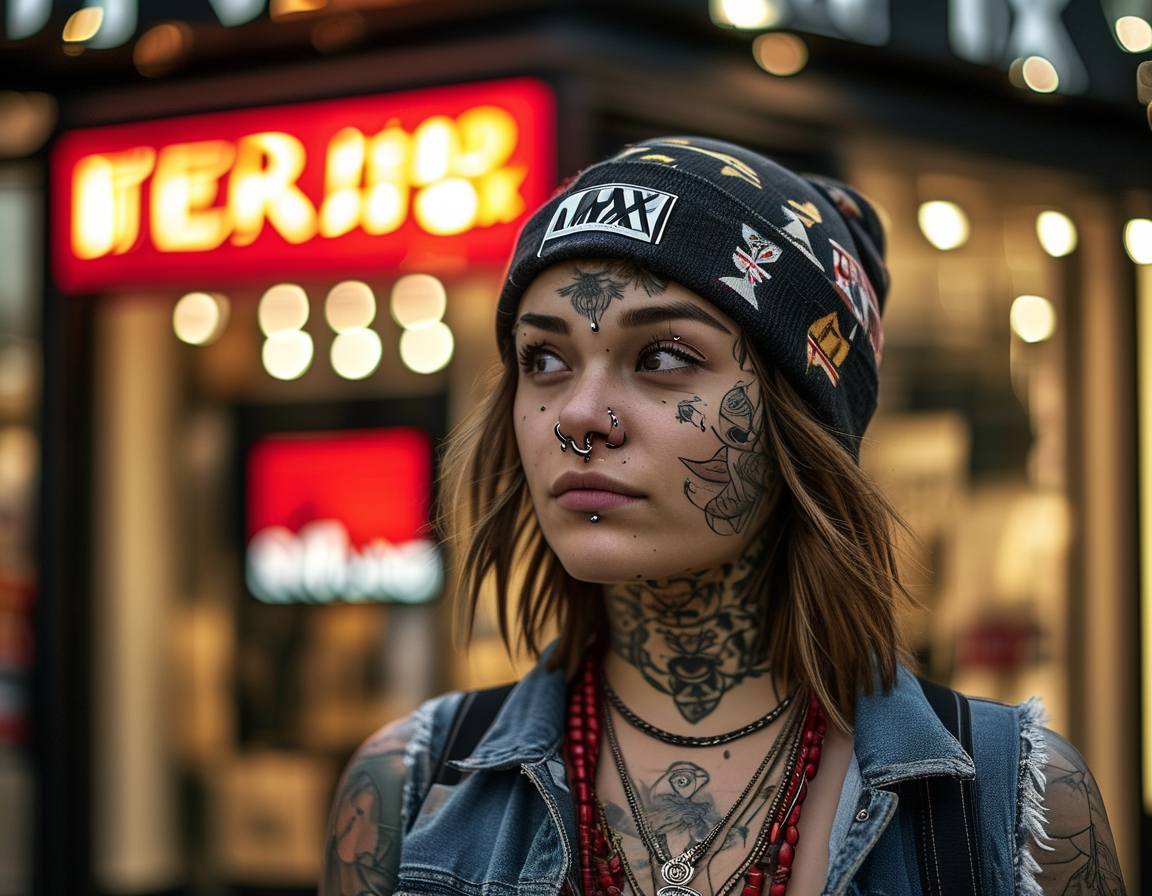
For anyone who has felt the sting of rejection, that lingering question always looms—why? Was it a lack of experience? Or something more personal, perhaps? These questions are at the core of a heated debate brewing online. It all began when 23-year-old Ash Putnam posted a TikTok detailing her job application saga with TJ Maxx.
Putnam, an Uber Eats driver in sunny California, craved stability. A retail job seemed like the answer, so she applied to TJ Maxx. Hopeful for a response, she instead received a cold automated email. The vague message informed her she was not selected for the role. It stung. She felt empty, left with more questions than answers.
Unable to shake her disappointment, Putnam decided to confront the store staff. ‘What was the reason I wasn’t hired?’ she asked. The response? Vague at best. They claimed she lacked experience and that there were candidates with more qualifications. But Putnam couldn’t help but wonder—could her appearance have impacted the decision?
She pressed further, asking if her facial tattoos and piercings played a role. The store staff denied this outright. Yet, Putnam harbored doubts. ‘I don’t think that’s accurate,’ she confessed later. It’s a thought many can relate to. This situation leads to an important dialogue about how societal norms still shape hiring decisions today.
As Putnam’s video spread like wildfire, millions chimed in with their thoughts, turning her personal experience into a topic of broader discussion. Had her tattoos been the deal-breaker in her job hunt? Commenters threw opinions back and forth like a tennis match. Some felt that visible body art surely played a part in the rejection.
Others argued it was solely about her experience. One commenter even suggested she work at a Halloween store. The mixed reactions on TikTok highlighted a divisive topic. Are we still living in a world where tattoos disqualify applicants? It seemed so.
Putnam believes tattoos shouldn’t dictate hiring decisions. ‘Tattoos do not define a person’s work ethic,’ she stated passionately. Many echoed her sentiments. In a high-tech and rapidly changing society, should we not judge candidates by their skills rather than their appearance? It’s a question worth pondering.
Every day, conversations about workplace discrimination resurface. For years now, visible tattoos have been deemed ‘unprofessional’ in many industries. Yet, in 2024, norms are shifting. Companies are starting to reflect a more modern attitude toward self-expression. Shouldn’t hiring practices evolve too?
Putnam argues for the need to rethink policies surrounding appearances. ‘They definitely need to reconsider if they believe that a person’s tattoos define their qualifications,’ she asserted. Many in the comments agreed, advocating a shift toward valuing skills over looks. After all, originality and creativity shouldn’t be frowned upon.
Yet, not everyone is on the same page. Some viewers felt that customer-facing roles require a certain image. The reality is, customers project their biases. One commenter reiterated that not all employers will accept visible tattoos. ‘Freedom of expression doesn’t mean freedom from consequences,’ they noted pointedly.
This raises another crucial point—how do companies balance brand image versus inclusivity? Many retailers have relaxed their policies regarding body art. Starbucks and Whole Foods, for example, have chosen to embrace a more accepting approach. Meanwhile, chains like TJ Maxx and Walmart can differ greatly by location and management.
‘It’s frustrating,’ one TikTok user summed up neatly. ‘Some stores don’t care at all. Others will turn you away. It’s a gamble, really.’ Acknowledging this inconsistency is essential. Why should applicants feel uncertain about their chances? Shouldn’t their talents take center stage?
Ultimately, Putnam’s experience leads to larger questions about fairness in hiring practices. While TJ Maxx never explicitly stated tattoos were the reason for her rejection, social media reactions suggest otherwise. Is it time for businesses to be transparent about how appearance factors into their hiring decisions?
As we venture deeper into 2024, we must ask ourselves where the line should be drawn. Should tattoos and body piercings still influence employment prospects? Or can we finally move toward a more progressive workplace culture?
What are your thoughts on this evolving debate? How do you feel about the standards placed on appearance in hiring? Shouldn’t the merit of one’s skills outweigh outdated biases? Join the conversation and let your voice be heard!
Leave a Comment